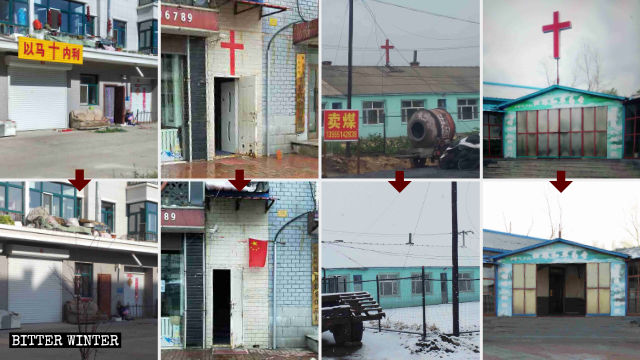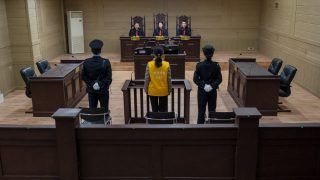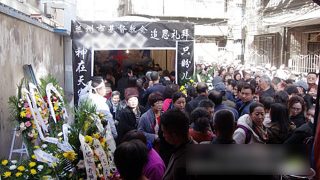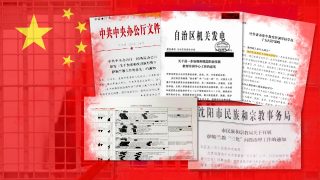
By Linda Burkle, PhD
2019 was a year marked by heightened surveillance and persecution of Christians in China. According to China Aid, Christians living in President XI Jinping’s current regime have experienced more arrests, imprisonments, and church closures than at any other time since Mao’s Cultural Revolution.[1] There were at least 5,576 attacks reported on churches last year, an increase of 171 from the previous year. David Curry, President and CEO of Open Doors USA, stated “The Chinese government is nearly single-handedly responsible for the steep increase in churches and Christian buildings attacked in 2019. The newest policies are penalizing minority Christians in unprecedented ways. If they continue down this path, they will be the single largest violator of human rights worldwide.”[2]
Open Doors Watch List designated China as the 23rd worst country for religious persecution, up from its previous ranking of 27th. However, this ranking cannot completely reflect the government surveillance, social oversight, and oppressive limitations that are constantly increasing on all religions. The report cites examples of persecution such as the banning of online Bible sales, teachers and medical staff being pressured to sign documents saying they have no religious faith, the elderly told that their pensions will be cut off if they didn’t renounce Christianity, pastors being arrested without charges and sentenced to prison, children under the age of 18 being forbidden from attending church, and landlords being pressured to cancel rental contracts with churches.[3]
In addition to these abuses, an international tribunal has found evidence of forced organ harvesting in China’s so-called reeducation camps. Reports indicate that organs are removed while prisoners are still alive and sold for a large profit.[4] While China denies these allegations its actions are widely acknowledged and condemned by the international community, including human rights groups, politicians, and religious leaders. On February 27, 2020, a letter signed by many of these leaders was sent to President Trump urging him to demand human rights violations end as a condition of the Phase Two China Trade Agreement negotiations.[5]
In their most recent annual report, the U.S. Commission on International Religious Freedom also noted an increase in persecution, once again designating China as a Country of Particular Concern. Since President Xi Jinping came into office there has been a concerted, systematic tightening of religious freedoms—even though Article 36 of China’s constitution “grants citizens ‘freedom of religious belief’ and directs the government to protect ‘normal religious activities.’ However, this freedom is limited by the requirement that religious activities cannot ‘disrupt public order, impair the health of citizens or interfere with the educational system.’ The constitution also bans religious organizations that are ‘subject to any foreign domination,’ a provision the government has used to crack down on Uighur and other Muslims, Tibetan Buddhists, Christians, and other religious groups.”[6]
In March 2018, the National People’s Congress voted to abolish presidential term limits, effectively allowing Xi to serve as president for life, and added “Xi Jinping Thought” to the national constitution. At the same time, the Chinese Communist Party (CCP) revised the Regulations of Religious Affairs, transferring jurisdiction over religious affairs from the State Administration of Religious Affairs to the United Front Work Department, an organ of CCP. This shift enables the CCP to directly monitor all religious organizations and activities at both the local and national level.
Effective February 1, 2020, the Administrative Measures for Religious Groups were imposed, further tightening control over all religious groups. The 41 articles contained in the document are comprehensive in nature, detailing all aspects of religious organization, observation, finances, activities, and communications at both the national and the local level. Chinese churches are required to register with the Protestant Three-Self Patriotic Movement or the Chinese Patriotic Catholic Association. Given the breadth and depth of these requirements, a church body or leader could unknowingly commit a slight infraction and be arrested.[7] It is not surprising that an estimated one half to two thirds of protestant Christians worship in underground congregations.[8]
Churches are now required to incorporate communist ideology and “Sinicization” as preeminent in their theology and religious observance. Effectively, the church must now become an agent of the state, promoting communist ideology and Sinicization above its own religious creeds. Services must begin with singing patriotic songs and bowing to a portrait of President Xi. “The campaign of Sinicization, or making things Chinese in character or form, under Xi Jinping is an effort to consolidate power and curb social unrest. It is based upon a two-fold strategy of suppressing non-traditional or ‘foreign’ religions while promoting traditional faiths. The first part of its strategy is rooted in the party’s deep-seated fear that religious individuals could form allegiances to authorities outside the state’s control. ‘As long as China is a one-party state, [there can only be] a single center of power that views all other organizing mechanisms as threats,’. . . since Xi took the helm of the CCP, state religious policy has created a more restrictive legal environment, expanded its targets of repression, increased intrusion into religious life, and further capitalized on technological advancements.”[9]
Yet Christianity is flourishing. Congregations continue to grow despite intense persecution. There are an estimated 97,200,000 Christians in China, comprising about 6 percent of the total population. In comparison, there are 90 million members of the Chinese Communist Party (CCP). China’s Christian population is projected to grow to 250 million by 2030. Pastor Wang of Early Rain Church has been an outspoken critic of the CCP leader XI’s “Sinicise religion” policy and as a result, he is currently serving a nine-year sentence. Prior to his arrest, Pastor Wang stated “the rulers have chosen an enemy that can never be imprisoned—the soul of man. Therefore, they are doomed to lose this war.”[10]
Dr. Burkle retired from The Salvation Army in early 2019 where she oversaw an array of social services in a multi-state region. Along with the State Attorney General, Burkle Co-Chaired the Nebraska Human Trafficking Task Force. Dr. Burkle holds a doctoral degree in international relations. Her dissertation focused on religious persecution; specifically regarding Iran, Iraq, Sudan, China and Burma (Myanmar). Dr. Burkle resides in Omaha, Nebraska. She has three grown children and eight grandchildren.
Disclaimer: The views and opinions expressed in this article are those of the authors and do not necessarily reflect the official policy or position of International Christian Concern or any of its affiliates.
[1] https://thefederalist.com/2020/01/07/xis-china-ends-2019-with-the-worst-religious-persecution-in-the-countrys-history
[2] https://www.christianheadlines.com/contributors/Michael-foust/china-persecuted-5576-churches-in-2019-climbs-to-23-on-worst-persecutors-list.html
[3] https://www.opendoorsusa.org/christian-persecution/world-watch-list/
[4] https://thefederalist.com/2020/01/07/xis-china-ends-2019-with-the-worst-religious-persecution-in-the-countrys-history
[5] https://lcaction.org/LCA-PDFs/2020/WEYRICH.Letter-China.Religious.Freedom-USCTA.pdf
[6] https://www.uscirf.gov/sites/default/files/Tier1_CHINA_2019.pdf
[7] Ibid.
[8] https://thefederalist.com/2020/01/07/xis-china-ends-2019-with-the -worst-religious-persecution-in-the-countrys-history
[9] https://harvardpolitics.com/covers/different-but-the-same/
[10] https://thefederalist.com/2020/01/07/xis-china-ends-2019-with-the -worst-religious-persecution-in-the-countrys-history
Source: ICC www.persecution.org



